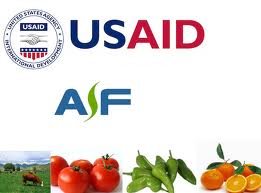USAID & ASF Launch Agribusiness Project
August 8-2013
About The Project
The five-year Agribusiness Project is funded by the American people through USAID and is implemented by ASF. The project aims to address priority constraints impeding the development of Pakistan’s agriculture sector with a focus on horticulture and livestock sub-sectors.
The project will focus on off-farm, upstream marketing, and value addition activities in the priority value chains. Strengthen processing, marketing, and product diversification through improvement in farming practices; Support development of farmer organizations, businesses, and related networks that are key to linking producers, suppliers, and processors. Work in areas with greatest potential for value addition. The project will work throughout the entire country, with emphasis on the underserved areas of Khyber Pakhtunkhwa, Baluchistan, FATA, Southern Punjab, and Northern Sindh.
Project Goal
Increase competitiveness of horticulture and livestock value chains to support broad-based economic growth, creation of employment opportunities, and poverty alleviation.
Objectives
- To strengthen the capacity in horticulture and livestock value chains to increase sales to domestic and foreign markets;
- To strengthen the capacity of smallholders and farmer enterprises to operate autonomously and effectively; and,
- To increase agriculture efficiency and productivity through adoption of new farming techniques and technological innovation among beneficiaries.
Overall Strategy Target subsectors: horticulture and livestock. Approach: value chain clustering. Interventions aim to increase value addition through improved processing, market access, and diversification.
Project activities
1. Technical Assistance for Capacity Building
1.1 Technical Assistance : ASF has teamed up with an international organization-CNFA for provision of expertise in relevant program implementation themes.
1.2 Markets Linkages : The project will strengthen capacity within the value chains in horticulture and livestock sub-sectors to increase sales to domestic and foreign markets.
1.3 Capacity Building, Training, and Awareness: Priority value chains will be supported for value addition, marketing, and export i.e. quality and food-safety certifications; international exhibitions, exposure visits etc. and, Value Chain Platforms (VCPs) / Sector Working Groups. The Project will also build capacities of Business Development Services Providers (BDSPs) and organize training on various themes related to technical and managerial aspects of agribusinesses.
1.4 Kissan Field Schools: The project will implement Kissan Field Schools (KFS) program, a concept that has evolved from Farmer Field Schools (FFS). The KFS’s focus will be on small holders producers and will explore opportunities for farmers to markets.n
2. Partnership Window for Cost Sharing Grants
2.1 Farmer Enterprise Groups (FEGs) Formation and Grant Support: Grants will be provided to NGOs/RSPs and other organizations to organize small farmers into FEGs and assist these in value addition (processing, grading/packing, storage and marketing).
2.2 Matching-Grant to Associations, Cooperatives and Farm Services Centers: Grants will be provided to NGOs/RSPs to strengthen/register relevant agriculture associations and cooperatives with a view to scale-up FEGs to extend farmer domain from traditional farming practices to value-addition and marketing.
2.3 Matching Grant Support to Individual/Corporate Farming: This intervention will seek to assist new and existing producers for agribusiness start-up or expansion especially regarding capacity building needed for commercial orientation.
2.4 Agriculture extension/research services development in private sector: Matching-grant support will be provided to strengthen private sector extension and business advisory services.
2.5 Matching Grant Support to Enterprises: These grants will be provided to support innovative ideas and investments in marginalized and under-served geographical areas, to promote diversification and to assist enterprises link small-holders with the formal market systems. This sub-component includes challenge and lead company grants.
Planned Outcomes
Farm and enterprise productivity improved through technical assistance programs targeting 62,500 farmers and 2,500 agribusinesses.
Leveraged investment of up to $320 million by the private sector through the provision of cost-sharing support to:
- 45,000 Farmer Enterprise Group members
- 100 associations and cooperatives
- 250 individual and corporate farmers
- 140 SMEs, and
- 8 Lead companies
Employment generation for 1.3 million persons under the various project initiatives.
